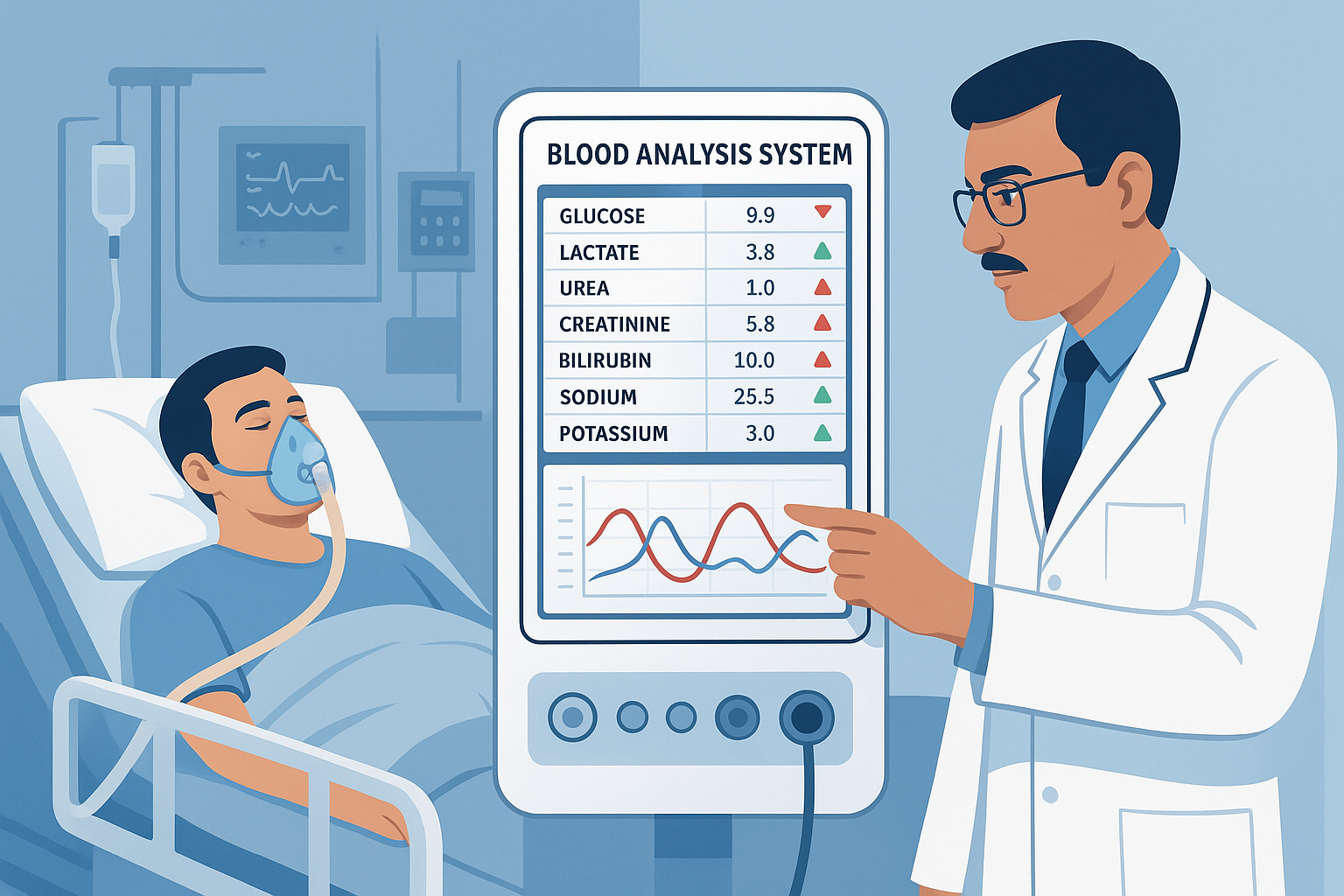Dr. Bal Chander, Professor of Pathology at Dr. Rajendra Prasad Government Medical College, has received a United States patent for his pioneering Blood Analysis System (BAS). The invention promises to transform critical care with real-time blood monitoring and treatment capabilities.
A Breakthrough in Critical Care
The patented device can continuously measure blood molecules and ions such as glucose, lactate, urea, creatinine, bilirubin, sodium, and potassium. Unlike conventional methods that rely on repeated blood draws and delayed laboratory reports, BAS provides instant results.
The system also offers an advanced corrective function. It can selectively remove or balance harmful molecules and ions without the use of drugs. This selective adjustment makes it distinct from traditional dialysis machines, which perform general blood filtration.
Read more about recent patent innovations
How It Works
The BAS integrates measurement and therapeutic intervention into a single platform. Once connected to a patient, it provides a live stream of biochemical data. Physicians can monitor patient status in real time and make swift decisions in emergencies.
The device also enables targeted correction of abnormal blood parameters. By doing so, it reduces complications and enhances survival chances in intensive care units.
Explore advances in medical technology
Personal Motivation
Dr. Chander revealed that his motivation came from personal loss and the need for faster medical solutions. He worked on the project for a year, without external funding, sponsorship, or collaboration. His determination underscores the potential of individual innovation in medical science.
International Recognition
The European Patent Office has also ratified the originality and working process of the invention. With protection in both the US and Europe, the BAS stands ready for global commercialization. This recognition places Himachal Pradesh on the map of international healthcare innovation.
Learn how patents protect inventions
Potential Impact
Healthcare experts believe this system could redefine patient monitoring in ICUs. Quick detection of critical changes in blood chemistry can reduce mortality rates and cut treatment delays.
If manufactured at scale, BAS could also make advanced monitoring affordable in developing countries. Its drug-free correction approach might reduce side effects and reliance on costly medicines.
Looking Ahead
Dr. Chander’s success highlights the importance of research and innovation in India’s medical sector. With proper industry support, BAS could become a standard tool in hospitals worldwide.

